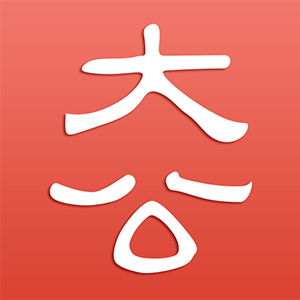
The Education Bureau of the SAR Government begins the second-phase consultation on revising the Chinese History curriculum, which will last until end of November.
No doubt, the Chinese History curriculum for Secondary Schools must be revised and Chinese History must be made an independent compulsory subject of study. This is an indisputable fact. Since Hong Kong's return to the Motherland in 1997, a lot of improvement has been made in education. Achievements in this regard must be affirmed. Undeniably, however, it is a major flaw in the SAR Government's education policy since Hong Kong's handover to abolish Chinese History as an independent and compulsory subject and, in replacement, merge it into World History as an elective subject for students to decide whether to take it or not.
Such a flaw has dire consequences. It could be said that this has done what even the British colonial government did not dare to and could not do. Before the handover, secondary school students in junior years all had no choice but to take Chinese History, which was never merged into World History for so-called "horizontal learning". But [after the handover], the curriculum reform committee restructured the secondary school curriculum to list the Chinese Language, English Language, Mathematics and General Studies as compulsory subjects but "downgrade" Chinese History as an elective subject. As a result, the number of students taking Chinese History becomes smaller and smaller, down to just a few thousand last year. The situation is so miserable that one cannot bear seeing it.
Supposedly, it is no big deal for a student to take one more or one less course. But if the one they decline to take is not some informative subject but the history of their own nation, then it is a big problem! Secondary school students in their junior years not studying Chinese History are like tree seedlings not absorbing water and nutrients from soil. How could such a tree seedling possibly grow into a luxuriant big tree later? How could it possibly resist the attacks of winds and storms?
As a matter of fact, dire consequences of junior second school students not taking Chinese History are now right before our eyes: opposing including National Education into the curriculum as a subject of study and dismissing it as "brainwash"; and even the law-breaking Occupy Central, Mong Kok Riot, the rising of localism and "independence for Hong Kong". These incidents may have their own specific causes, but a common and most fundamental cause lies in that without studying Chinese History, students understand little national circumstances, lack national awareness and know nothing about the Chinese nation's sufferings in modern times, so much so that they do not know how to cherish the fact that it is not easy at all for our nation to grow as strong as today and one feels proud and happy nowadays being a Chinese national.
Therefore, it could be said that today Chinese History is to be made a compulsory subject for junior secondary schools because of a "bitter" lesson learned from merciless reality. A person must never forget his origin and past. A nation is never rootless. A country attaches importance to its history in order to know what should be averted, as reviewing the past helps to understand the present. Citizens learn history of their country in order to know what is honourable and what is shameful so they will love their nation and homeland. This must, first of all, be ascertained and carried through throughout the revision of the Chinese History curriculum.
Consequently, regarding the ongoing curriculum consultation, it is crucial for the curriculum to enable junior secondary school students, after studying the Chinese History subject for three years, to understand the reasons behind the nation's ups and downs and the relationship between the people's fate and the nation's rise and decline, so as to eventually become aware of one's rights, duties and responsibilities as a Chinese national today. It is not crucial how many teaching hours Ancient History, Medieval History and Modern History should be allocated each, or what should be covered for a certain dynasty. Nor is it crucial whether some of the content listed in the part of "extension" on the consultation paper should be included in the curriculum, such as the King of Yue Gao Jian and Wu Yue Chun Qiu, Tang Xuanzang's journey to the west for buddhist scriptures, or peace and war between ethnic groups in border areas and the court of Song Dynasty.
Likewise, the consultation should be concise instead of cumbersome in content. The purpose of consultation is to enrich the content of the curriculum rather than to debate over political issues. These two principles must be made certain. The opposition insists on including some specific incidents into the curriculum. Their aim is to politicise the consultation rather than enable students to well learn Chinese History. Their vicious intention sticks out a mile.
31 October 2017